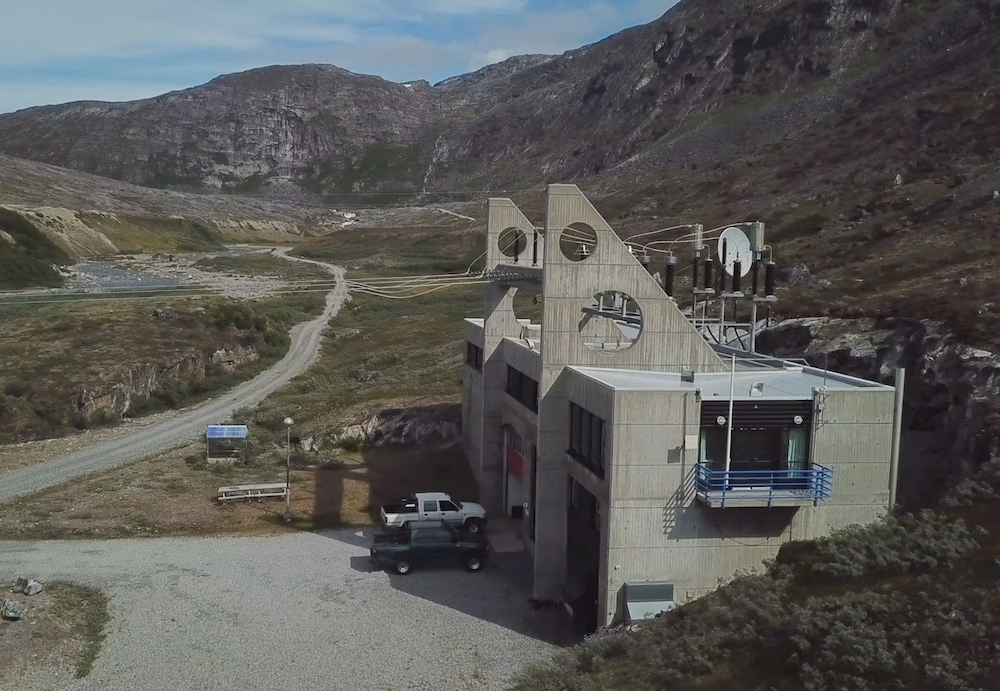As Greenland seeks to diversify its economy, water is shaping up as a key element
Greenland representatives promoting the country's exports in Europe this week have added fresh water and hydroelectric power to their list of offerings.

A group of 50 Greenlandic lawmakers and businesspeople are on a week-long trip to visit European capitals as part of an effort to diversify that country’s exports.
Currently, sales of fish to other countries account for 93 percent of Greenland’s exports. That, however, leaves the country vulnerable to price fluctuations and changes in supply. For years, tourism (technically an export) and mining have been viewed as the main sources of new income. While those industries will be on the agenda during the trip to Copenhagen, Berlin and Paris, this time around the sales portfolio will also include fresh water and hydroelectric power.
Commerce officials began the trip in Copenhagen on Friday by presenting five areas that will be licensed for collection of water and ice for export later this year, as part of Greenland’s second sale of licenses to exploit water resources. The first such sale, undertaken last year, ended with seven companies being awarded permission to collect and export water from the five areas that were included in that round.
[As ice melts, Greenland could become big sand exporter, says study]
The locations are promoted as easy-to-reach areas on the western coast that have access to large amounts of clean water flowing down from the ice cap that can be sold at high prices abroad. In order to get their water to market, license-holders will need to invest in filtering and bottling equipment. Sales and shipping will also add to their costs.
Germany and France are Greenland’s two biggest tourism markets, and while the delegation will meet with tour operators in those two countries’ capitals, they’ll also be repeating their pitch to attract firms to invest in water exports.
Greenlandic officials will also be seeking to promote the country’s abundant hydroelectric power potential, which they believe could be used for things like heavy industry and data centers.
Greenland gets about 70 percent of its electricity from five hydroelectric dams. By 2030, it hopes to expand that to 90 percent, but even then its needs will be far smaller than the estimated potential to generate power by damming streams and lakes fed by rainwater, melting snow, and increasingly, melting ice.
[Remote settlements in Greenland have a future, but they cannot make it alone]
In the past, mining companies, most notably Alcoa, an aluminum producer, looked into building facilities in Greenland that would use hydroelectricity to power their refining operations. Nothing ever materialised, and in the meantime, other regions in the North have successfully marketed their cold climate and availability of renewable energy to attract the attention of climate-conscious computer firms looking to place power-hungry data centers, and now this is a business Greenland would like to tap into.
Helping its case is the 12.8 terabyte per second (or 12,800,000 megabyte per second) Greenland Connect undersea cable that links the country with North America and Europe. While this is less capacity than many other transatlantic cables, it is the same cable that Iceland’s booming data-center industry uses to connect with North America.
The final stop on the trip is a visit to an Airbus assembly facility near Paris. Earlier this month, Air Greenland, a state-owned carrier, announced that it would replace its existing Airbus A330, purchased more than two decades ago, with a similar model. According to reports in the Danish media, it will also consider purchasing a second, smaller Airbus capable of serving a planned regional airport in the southern part of the country.